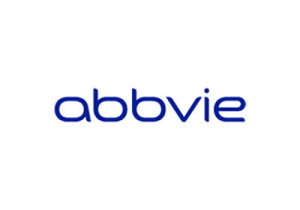A Czech, Who Can Influence How States Should Regulate Technological Giants Like Uber Or Airbnb

Bratislava, November 8, 2016 – Technological platforms, that twisted world inside out. And at the same time they split it. On one hand there are millions of people who regularly use its services. On the other hand there are representatives of traditional business and states. The latter don't like that the same rights and obligations are not applied to all. Yes, we are talking about Uber or Airbnb.
These global players, who deal with transport of persons (Uber) or accommodation services (Airbnb) and are the most well known representatives of the so-called shared economy, are reluctant to adapt their operation to the new rules and the European Commission, which has issued a recommendation to Member States to adapt to the shared services is also looking for new rules in this area. Whether it's the labor code or the rules that govern the business. "Currently, the developments in Europe are moving towards greater protection of the consumer. Personally I don't find it quite a fortunate solution, because services like Uber or Airbnb don't have major problems with client satisfaction, despite their enormous scale, “says Martin Polčák, who is a well-known expert on cyber law and philosophy of law. He teaches and publishes on this subject at the Masaryk University and is a guest lecturer at law schools and educational institutions in Europe and America.
He will present his findings already on November 14, 2016 on the two-day international ITAPA Congress, which will take place in Bratislava at the Crowne Plaza Hotel.
"Instead of a higher consumer protection, it is necessary to focus on the question of the obligations of platforms with regards to public finance - in particular it applies to taxes and fees - and on the protection of the rights of the service providers themselves, such as drivers. These are the issues of social security, working conditions, job security, "explains Martin Polčák.
In which direction will the new regulatory framework go? What impact will it have on Uber, Airbnb or other platforms that utilize the potential of people who want to earn some money, but don't want to or can't run a business? To what extent will it be not only for global players, but also for local regional providers of a wide range of services from babysitting to cleaning or home culinary experiences, a limitation when they will have to meet the requirements of regulation just like their standard working competitors? And what impact will it have on existing customers in a shared economy?
Come next Monday, November 14, 2016 to the international ITAPA Congress at the Crowne Plaza Hotel Bratislava, where Radim Polčák will be presenting the development of the new regulatory framework and will dare to predict how the future European regulation is very likely to affect the market.
He will present his findings already on November 14, 2016 on the two-day international ITAPA Congress, which will take place in Bratislava at the Crowne Plaza Hotel.
"Instead of a higher consumer protection, it is necessary to focus on the question of the obligations of platforms with regards to public finance - in particular it applies to taxes and fees - and on the protection of the rights of the service providers themselves, such as drivers. These are the issues of social security, working conditions, job security, "explains Martin Polčák.
In which direction will the new regulatory framework go? What impact will it have on Uber, Airbnb or other platforms that utilize the potential of people who want to earn some money, but don't want to or can't run a business? To what extent will it be not only for global players, but also for local regional providers of a wide range of services from babysitting to cleaning or home culinary experiences, a limitation when they will have to meet the requirements of regulation just like their standard working competitors? And what impact will it have on existing customers in a shared economy?
Come next Monday, November 14, 2016 to the international ITAPA Congress at the Crowne Plaza Hotel Bratislava, where Radim Polčák will be presenting the development of the new regulatory framework and will dare to predict how the future European regulation is very likely to affect the market.
Sign in to ITAPA Health&Care 2025



















